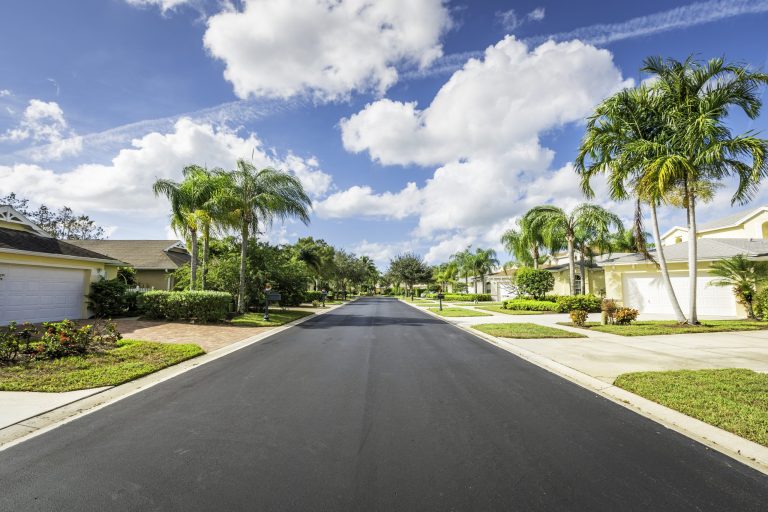Just How HOA Monitoring Assists In Communication and Conflict Resolution Among Residents
Home Owners' Organizations (HOAs) serve as critical entities in promoting communication and dealing with conflicts amongst residents. While these mechanisms are designed to reduce misconceptions, the underlying dynamics of resident communications can commonly make complex issues.
Function of HOAs in Communication
Property Owners' Organizations (HOAs) play a crucial function in assisting in interaction within domestic communities, working as the key conduit in between homeowners and the governing body. By establishing a structured framework for discussion, HOAs make certain that citizens' issues and ideas are heard and attended to effectively - austin hoa management. This function is critical in promoting a sense of neighborhood and belonging amongst locals, as it encourages engagement and cooperation


Eventually, the effectiveness of an HOA in interaction directly affects the general complete satisfaction of citizens. When communication is focused on and handled successfully, it promotes an unified living atmosphere where residents really feel valued and connected, leading the way for a much more natural and vivid neighborhood.

Developed Networks for Discussion
Developing reliable channels for dialogue is essential for any kind of Home owners' Association (HOA) seeking to enhance interaction within its neighborhood. These networks serve as fundamental devices that help with the exchange of info and foster a sense of belonging among homeowners.
Among one of the most common techniques is the use of newsletters, which supply updates on community events, upkeep timetables, and important announcements. Digital systems, such as community web sites and social media groups, can also play an essential role in making certain residents remain informed and involved. Frequently set up conferences, whether in-person or digital, allow members to voice issues, share ideas, and talk about community issues in an organized environment.
Moreover, idea boxes put purposefully throughout the neighborhood can encourage homeowners to offer feedback anonymously, fostering an atmosphere of openness. Establishing clear lines of communication, such as committed e-mail addresses or hotlines for particular problems, also encourages citizens to get to out easily.
Dispute Resolution Techniques
Reliable communication networks are essential not just for sharing details but additionally for dealing with problems that may emerge within a community. Homeowners' associations (HOAs) can carry out different conflict resolution techniques to promote an unified living atmosphere. One efficient approach is the establishment of clear standards that lay out acceptable behaviors and treatments for dealing with complaints. These guidelines must be conveniently accessible to all citizens, guaranteeing openness and uniformity.

In addition, problems may gain from an organized process for intensifying problems. HOAs can assign a problem resolution board or include a neutral 3rd party to promote discussions when necessary. This method provides a methodical way to deal with conflicts while preserving impartiality.
Inevitably, effective dispute resolution methods not just solve problems but additionally build trust among locals, enhancing a feeling of area and shared duty. By prioritizing these methods, HOAs can add to a more relaxed and cooperative community setting.
Mediation and Facilitation Techniques
When browsing problems within a assistance, mediation and area methods can play a vital role in promoting understanding and resolution. These techniques entail experienced specialists who direct conversations, making certain that all parties have the opportunity to reveal their perspectives in a useful setting. Arbitration concentrates on aiding contradictory events discover typical ground with negotiation, while facilitation entails taking care of group dynamics to promote efficient communication.
An efficient arbitrator produces a risk-free room for dialogue, encouraging individuals to proactively pay attention and understand with each other. This process typically includes reframing problems to clear up misunderstandings and emphasizing common interests rather than distinctions. Facilitators, on the various other hand, may employ techniques like conceptualizing sessions or group tasks to develop connection and enhance partnership among citizens.
Both strategies focus on nonpartisanship and impartiality, enabling locals to feel heard and valued. By using mediation and assistance methods, HOA management can equip neighborhood members to settle disagreements amicably, reducing tension and promoting a sense of belonging. Inevitably, these approaches add to a healthier area atmosphere, where problems are resolved proactively and connections are reinforced through open communication.
Advantages of Efficient Interaction
Clear interaction functions as the foundation for effective interactions within a neighborhood, significantly enhancing the general performance of HOA monitoring (austin hoa management). Efficient communication promotes openness, which constructs depend on among locals and the monitoring team. When locals really feel informed concerning neighborhood plans, occasions, and choices, they are most likely to engage favorably and add to the area's well-being
Furthermore, clear interaction minimizes misunderstandings he said and reduces the possibility for problem. By articulating expectations, responsibilities, and regulations clearly, HOAs can preemptively deal with issues prior to they intensify. Locals equipped with significant details are better positioned to follow neighborhood guidelines and settle disputes agreeably.
Furthermore, effective communication networks urge comments and recommendations from residents, equipping them to participate proactively in the decision-making process. This inclusivity not just boosts neighborhood morale yet additionally leads to even more representative and informed outcomes.
In addition, consistent updates via newsletters, meetings, check here and electronic platforms make certain that all area members are straightened with the HOA's vision. In summary, reliable interaction is important for cultivating a cohesive neighborhood, advertising active involvement, and ultimately accomplishing an unified living environment.
Final Thought
In verdict, reliable HOA administration dramatically enhances communication and problem resolution among locals. By establishing organized networks for dialogue and executing clear standards and arbitration strategies, HOAs foster transparency and area involvement. These efforts not just address worries without delay but likewise grow a feeling of duty amongst locals. Ultimately, the promotion of effective interaction leads to lowered misconceptions and enhanced resident fulfillment, adding to a unified and cohesive community setting.
Homeowners' Organizations (HOAs) play a critical role in facilitating interaction within residential areas, acting as the key conduit between citizens and the governing body.HOAs generally organize normal meetings, newsletters, and electronic systems to advertise transparency and maintain citizens educated about neighborhood developments and guidelines. These initiatives not view only improve communication but likewise empower citizens to engage in the decision-making procedure, thus enhancing their financial investment in the neighborhood's health - austin hoa management. When homeowners really feel educated about neighborhood plans, events, and choices, they are much more likely to engage favorably and contribute to the area's wellness
Ultimately, the promo of reliable communication leads to decreased misunderstandings and increased resident contentment, adding to a unified and natural area atmosphere.